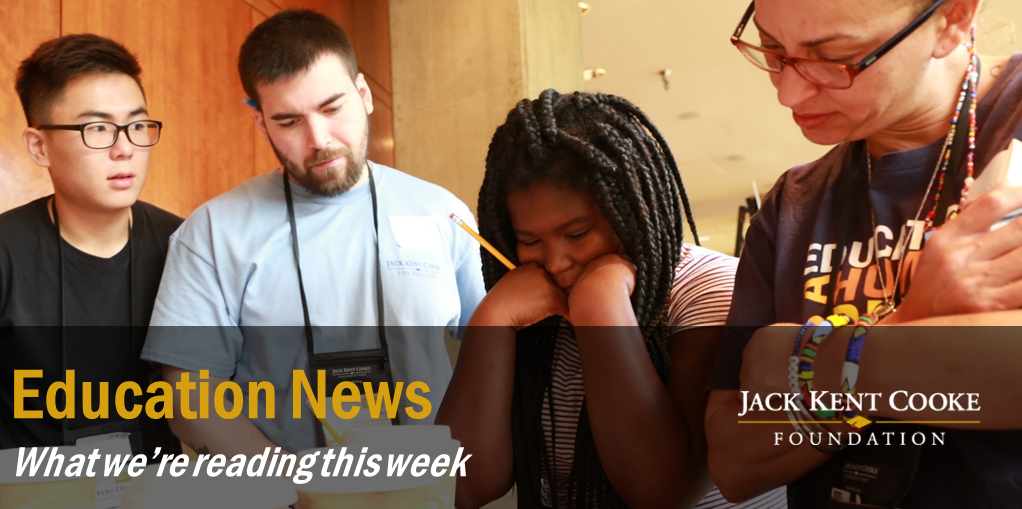Posted October 16, 2015 | By Cooke Foundation Staff

October 16, 2015—Our weekly roundup of the biggest stories you might have missed!
Elementary & Secondary Education:
- The Wall Street Journal examines the “chicken and egg problem” of New York City’s lack of gifted and talented programs in four of its 32 school districts. Although students are allowed to attend gifted programs in other districts, critics say that because there are none in these known low-income areas, families are not aware of testing or may struggle to transport children to a school outside of their neighborhood. Other NYC districts have higher rates of students who both test and qualify for gifted programs.
- High school students who take AP, IB, and dual enrollment classes have higher rates of college enrollment, yet as EdCentral notes, low-income students have less access to these programs.
- The U.S. Department of Education awarded a total of $4 million to initiatives in nine states, a university system, and a school district to increase the enrollment of underrepresented students in their gifted education programs. Education Week links the significance of this funding to the recent research study by Card & Giuliano that shows higher numbers of minority and low-income students were identified as gifted when screenings were universal and not reliant on teacher and parent identification.
- Arkansas has redefined “proficiency” on Common Core tests to a score of 3 out of 5. Ohio made a similar move earlier this year, despite the fact that the PARCC tests are designed to show college readiness at a score level of 4. The Washington Post calls out this method of inflating performance.
Higher Education:
- The Tennessee Promise is enrolling more students, but will it help ensure college completion? The Atlantic reflects that low-income students have money for college, but many still have to balance jobs and other responsibilities to pay for rent, textbooks, transportation, and other costs of attendance.
- At California State University, Sacramento, the Full Circle Project is building a community of Asian American students to help support them through the challenges of college. The Sacramento Bee describes the achievement gaps and differences among Asian and Pacific Islander ethnicities that are often overlooked when statistics identify them as a single group.
- Adam F. Falk, president of Williams College, writes about how institutions must go beyond need-blindness to actively recruit, engage, and provide support to high-achieving, low-income students in a piece for The Washington Post.
- A ballot proposal in Denver that would institute an increased sales tax has been met with some resistance, details The Denver Post. The tax would be used to fund a need-based scholarship program for students pursuing degrees or certificates in Colorado, as well as grants to help non-recipients pay off loans.
- Comparison of Pell grant graduation rate statistics by The Hechinger Report demonstrates that the Department of Education’s College Scorecard has a large margin of error and, for at least one institution, differed from The Education Trust’s data by 59 percentage points.
Cooke Foundation Highlights:
- The Cooke Undergraduate Transfer Scholarship application is open! Community college students who wish to continue their studies at a four-year institution in fall 2016 can apply now through December 15, 2015. The College Scholarship Program application is also open through November 3, 2015. In both programs, Cooke Scholars receive up to $40,000 for each year – plus college planning support, ongoing advising, and the opportunities for study abroad and internship stipends. They also become eligible for a $50,000 per year Cooke Graduate Scholarship.
Both applications are available here: https://application.jkcf.org
- Our Good Neighbor Grants program is accepting proposals from nonprofit organizations in the Northern Virginia, Washington, D.C., and Maryland areas that are helping students with significant financial need reach their full potential through education. Grant amounts will be awarded between $10,000 – $35,000. Learn more about our eligibility requirements and apply now through December 3, 2015.
